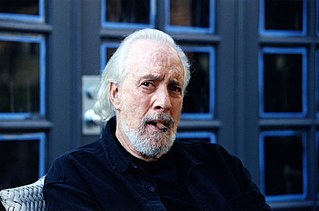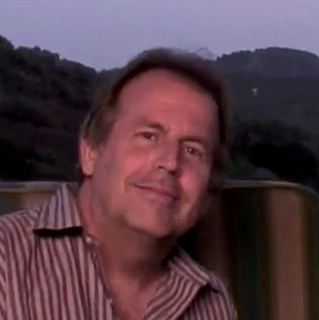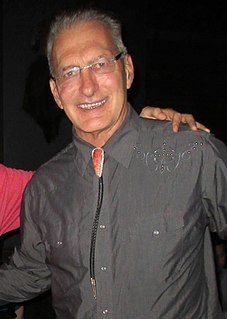Top 79 Screenwriters Quotes & Sayings - Page 2
Explore popular Screenwriters quotes.
Last updated on December 19, 2024.
Relative to the power that movie stars have, and producers and directors, I would say that even the most respected screenwriters have very little power in Hollywood. I don't think it's in the nature of the writer's profession to go after that power. Writers spend their time alone, hallucinating, writing, making these things up, while these other people are out schmoozing, making connections, meeting each other. They are trotting the corridors of power and making sure they've put their own imprints in it. And they're promoting themselves and their images, as they should.
Even Hollywood millionaires are now clamoring for legal protections for their illegal-alien nannies and gardeners, though such elites would hardly countenance a similar legal laxity that would allow foreign film technicians, screenwriters, and actors to flood southern California to work in their industry for a fourth of their own pay.
One of the things when you write, well the way I write, is that you are writing your scenario and there are different roads that become available that the characters could go down. Screenwriters will have a habit of putting road blocks up against some of those roads because basically they can't afford to have their characters go down there because they think they are writing a movie or trying to sell a script or something like that. I have never put that kind of imposition on my characters. Wherever they go I follow.
Most aspiring screenwriters simply don't spend enough time choosing their concept. It's by far the most common mistake I see in spec scripts. The writer has lost the race right from the gate. Months - sometimes years - are lost trying to elevate a film idea that by its nature probably had no hope of ever becoming a movie.
How often do we use other people as screens upon which to project our obsessions? Our discontents, dreams, desires, and fears? Well, I always thought, often enough that its a wonder the whole waking world isn't simply viewed as an endless improvised film. One with as many screenwriters, producers, and directors as there are actors
There have been screenwriters who I'm sure would gladly kill me, because I've been very fast and loose with their work, because I felt like it wasn't up to my high standards. I would push and pull it on set, and make changes all the time. But then when you're working with an original screenplay, my theater instincts kick in, and I suddenly become very keeper-of-the-words.
A lot of college graduates approach me about becoming screenwriters. I tell them, 'Do not become a screenwriter, become a journalist,' because journalists go into worlds that are not their own. Kids who go to Hollywood write coming-of-age stories for their first scripts, about what happened to them when they were sixteen. Then they write the summer camp script. At the age of twenty-three they haven't produced anything, and that's the end of the career.
Spike Lee is one of my biggest influences. What I love about Spike, other than he's just a fun guy to hang around, is that Spike is fearless. As much as people talk about him being politically outspoken, let's not forget that he's one of the best screenwriters, ever, in addition to being a visual master.
I've had a real lucky time working in Hollywood. I've talked to other screenwriters, and they're all kind of beaten down and their spirits are crushed, because they work on these screenplays and these projects, and then directors either take them and change everything, rewrite them and make them worse, or they film them and they're nothing like how they imagined it to be.
From the onset of the 'Live-Read' series, we wanted to hit all the major writers and Woody Allen is simply one of the greatest screenwriters of all time. He has ability to match pathos and comedy and drama and then turn it all on a dime. If you're going to make a series based on dialogue, you can't find much better than Woody Allen.
Comic books themselves are getting more literate. And there are people who are screenwriters and television writers and novelists who are writing for the comics, for some reason, they love doing it and some of the art work in the comics, I mean it rivals anything you'll see hanging on the walls of museums, they're illustrations more than drawings and all the people are discovering this and they're turning on to it.
I always remind people why The Oscars got started in 1928: It was an effort by the studios to suppress the unions. They started the Academy because all the screenwriters and directors and actors were unionizing, and they thought, "We'll have something that resembles a union, but that's completely controlled by the moneyed interests in Hollywood." That's what it's been all these years. It's something that reinforces Hollywood's image of itself. The Best Picture one year was Gandhi. Nobody watched Gandhi, but that's the kind of picture that always wins.
Young screenwriters are always very frustrated when they talk to me. They say, 'How do we get to be a screenwriter?' I say, 'You know what you do? I'll tell you the secret, it's easy: Read 'Hamlet.' You know? Then read it again, and read it again, and read it until you understand it. Read 'King Lear,' and then read 'Othello.'

















